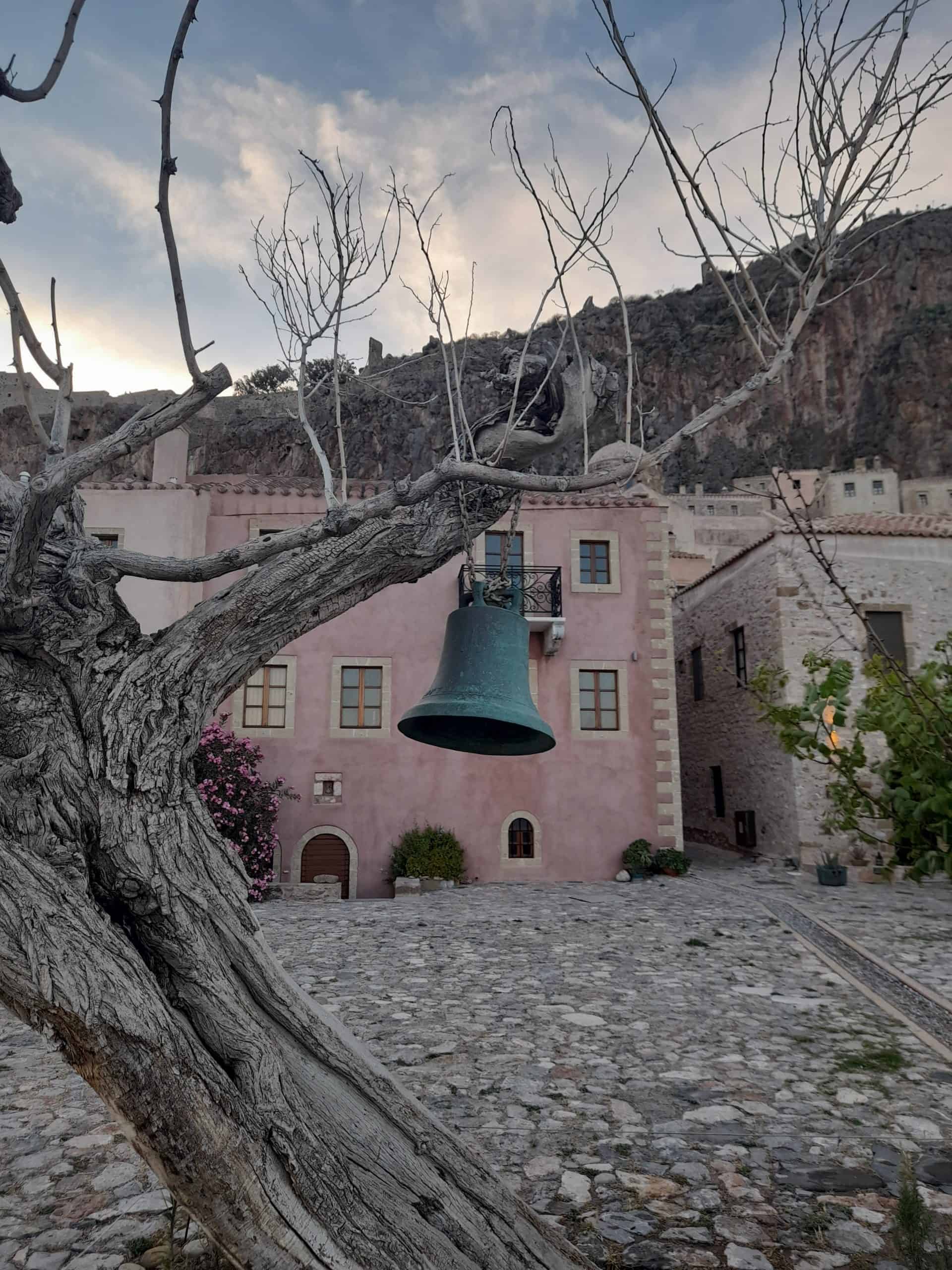Visiting Greece in January isn’t the most common time of year to travel, but that doesn’t mean that it isn’t a great time to plan a trip! Although Greece does not see scorching hot temperatures all year round, the weather is generally pretty pleasant, whatever time of year you choose to visit.
This is a country that sees more than 250 days of sunshine a year after all. And while Greece may be best known for its islands and paradisical beaches, that definitely isn’t all the country has to offer.
Greece is bursting at the seams with historical and archeological sites, cultural attractions, incredible restaurants, and gorgeous walking trails. Visiting Greece in January means you can enjoy all of this without the crowds that flock to the Mediterranean during the summer months.
Visiting Greece in January 2024
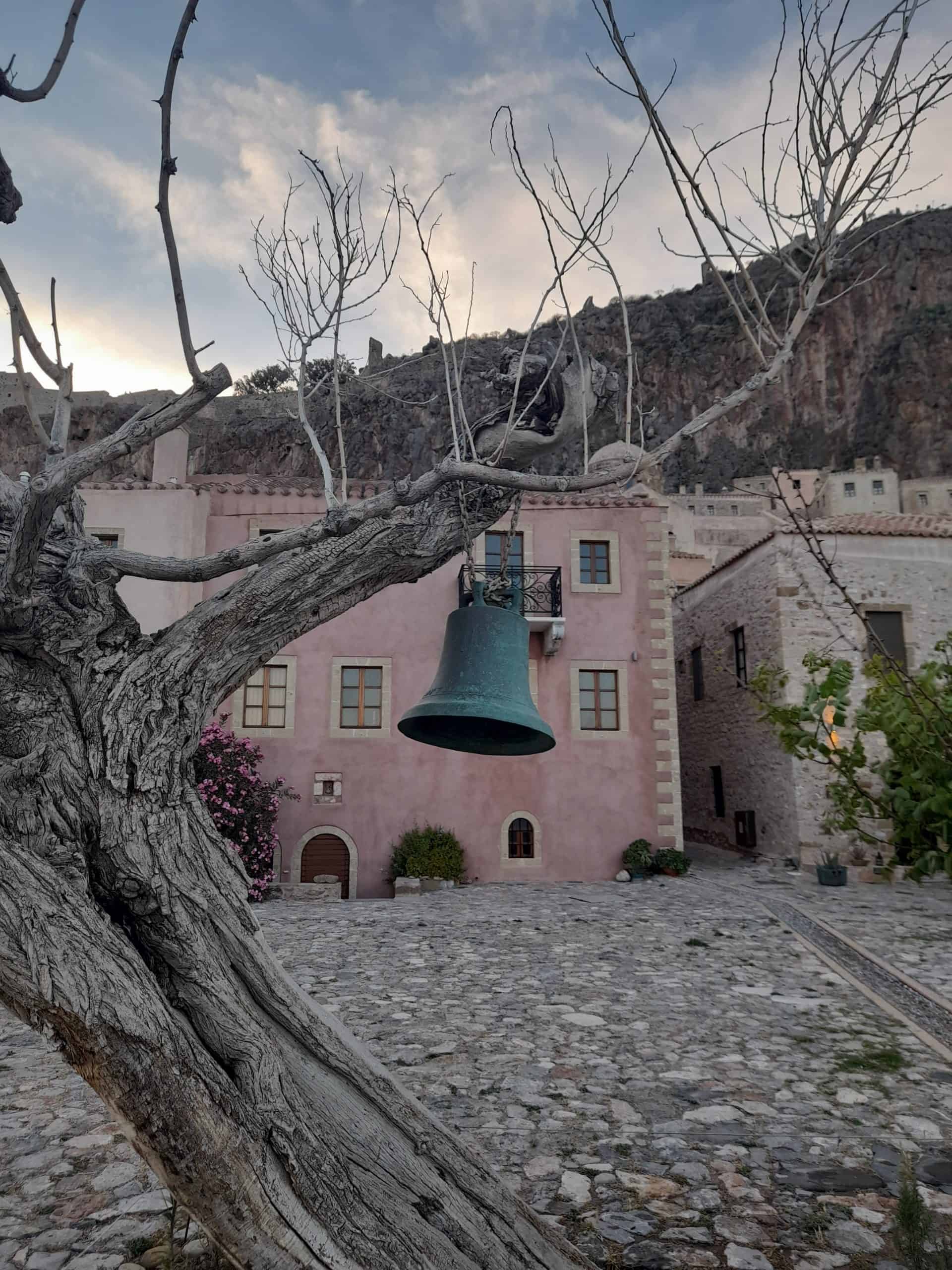
There are both pros and cons to visiting Greece in January. On the plus side, you don’t have to contend with tourists everywhere you go.
The peak summer months of June through to September often see more foreigners than Greeks in some parts of the country. When you have to deal with chaotic airports, queue for hours to get in anywhere, and everywhere is crowded, it can definitely detract from your experience somewhat.
The other positive to visiting Greece in January is that everything is cheaper at this time of year. Hotels, car rentals, flights, and organised tours and excursions can be as much as 50-60% lower in price in January and February versus July and August.
That is not a marginal difference! If you are travelling to Greece on a budget, visiting out of season is the best time for you to go!
Of course, the downside is that the weather isn’t suitable for enjoying the beaches at this time of year. (Except for strolls along the coast with a hot cup of Greek coffee which is just as pleasant!)
Tourism to a lot of Greek island groups is very seasonal. Most businesses shut their doors from October through to May so if you were to venture to the Sporades or the Cyclades at this time of year, it simply wouldn’t be the same experience when everything is boarded up.
Still, travelling to Greece at any time of year comes with its pros and cons. Whether January sounds like a pleasant time for you depends a lot on your personal preferences and what you want to get out of the trip.
Greece in January Weather
Greece sees mild winters compared to much of northern and western Europe. Obviously, the temperatures vary somewhat depending on specifically where you are in the country.
Northern Greece (Macedonia and Thessaly) sees much colder conditions than the southern part of the country, Crete, and the Dodecanese. The weather in Greece during January is quite mild; the average temperatures at this time are between 7°-13°C (44° – 55°F).
Still, even when it is cold, it is usually bright and sunny. Some rainy, dreary days are not unheard of so it is still a good idea to include an umbrella and a coat in your Greece packing list.
Rainy weather/storms are usually brief and the sky quickly clears up afterward. Greece isn’t London after all!
Winter in Greece is unpredictable, snow is not guaranteed. However, in the past couple of years, we have seen some snowfall across the company.
Where to Travel in Greece in January
Greece in January is arguably the best time to explore Greek cities. You could spend a few days or a long weekend in Athens, Thessaloniki, or Ioannina.
Greece is also a great hiking destination. Islands such as Evia and Skopelos offer fantastic hiking trails that take you past jaw-dropping natural scenery. Some of the best long-distance trekking routes in Europe can be found here too: including Vikas Gorge in Northern Greece, Samaria Gorge in Crete, and the Corfu trail.
Athens
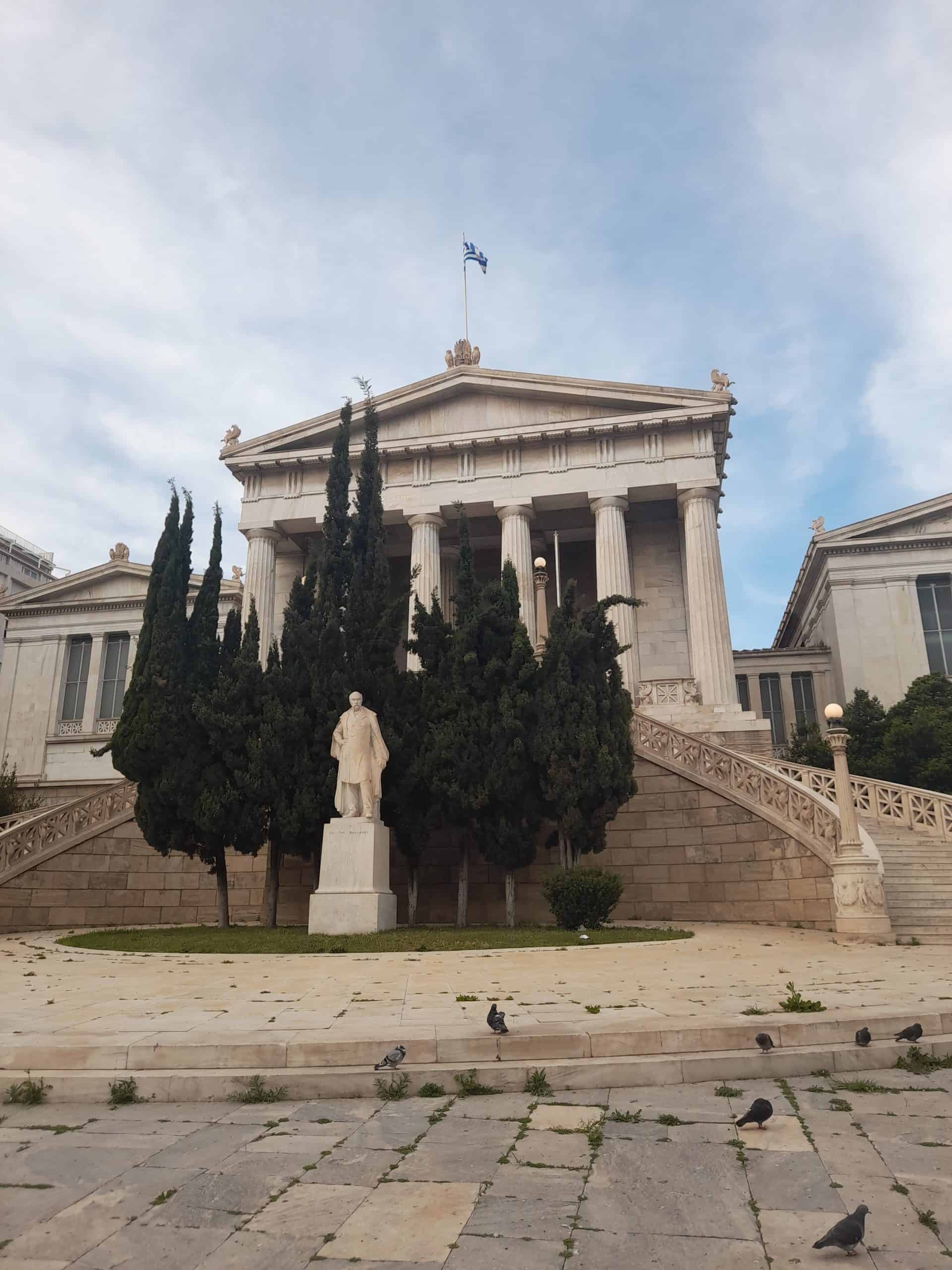
Seeing Athens in winter is a magical experience. Most of the city’s main sites, Athens landmarks, and attractions are enjoyable in any weather.
Arguably, exploring them is even better in the winter season. During summer in Greece, it is not uncommon for temperatures to soar as high as 35-40 degrees celsius.
This is almost unbearable and it is hard to make full use of your day. Athenian winters are mild and you can spend hours wandering around the various Athenian neighbourhoods without trying to constantly hide from the intense sun.
Start your Athens itinerary by exploring the central districts of Syntagma, Thissio, Monastiraki, and Psiri. Spend your evenings sampling local cuisine at the quaint tavernas and bouzouki bars of Plaka, and buy an Athens combination pass to visit some of the Greek capital’s most important historic sites.
The Acropolis, the Ancient Agora, Hadrian’s Library, and the Acropolis Museum are must-visits. You can also then follow the short walking trails to the peaks of Mount Lycabettus and Filopappou Hill to enjoy incredible panoramas across the city.
Thessaloniki
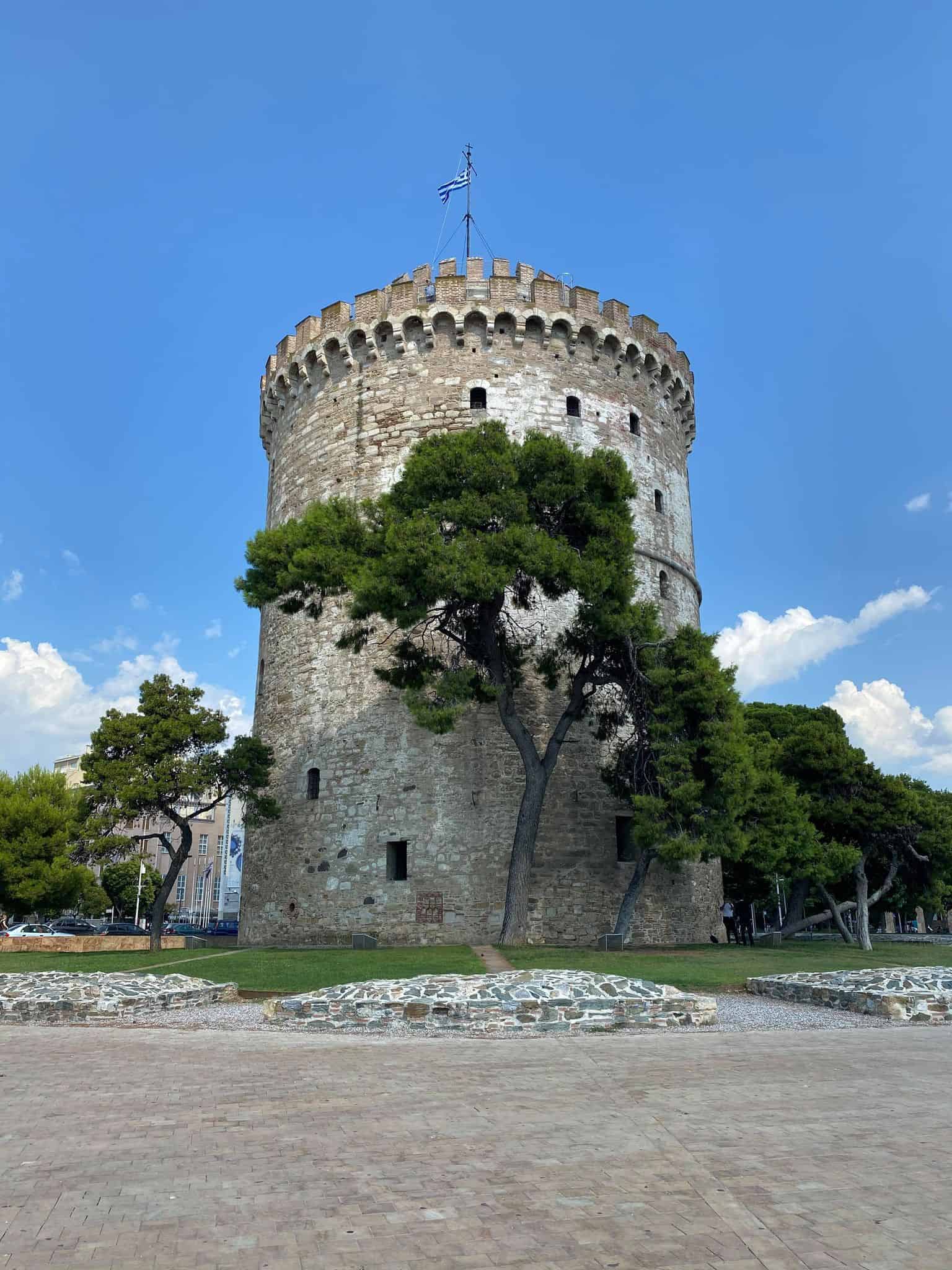
Thessaloniki is Greece’s second city. It is frequently overlooked but is a wonderful alternative city break destination, particularly as several European airports offer cheap direct flights here.
Several interesting Ottoman-era ruins are scattered throughout the city including old hammams (bathhouses) and mosques. Don’t miss the opportunity to obtain a bird’s eye view of the city from the 15th-century White Tower.
This structure was built as a fortification during the Byzantine era. It was used as a prison during the Ottoman era and was nicknamed “the tower of blood” because of the various executions and tortures that occurred there.
Thessaloniki is quite the gourmand and boasts a plethora of excellent restaurants that showcase cuisine from across Greece. By nightfall, head to Ladadika, an old Ottoman marketplace, and the city’s premier dining and entertainment district.
There are also many interesting day trips that you can take from Thessaloniki, even during the winter months. For instance, you can visit Edessa & the Pozar thermal baths, or you can explore the ruins of Ancient Pella.
The Peloponnese
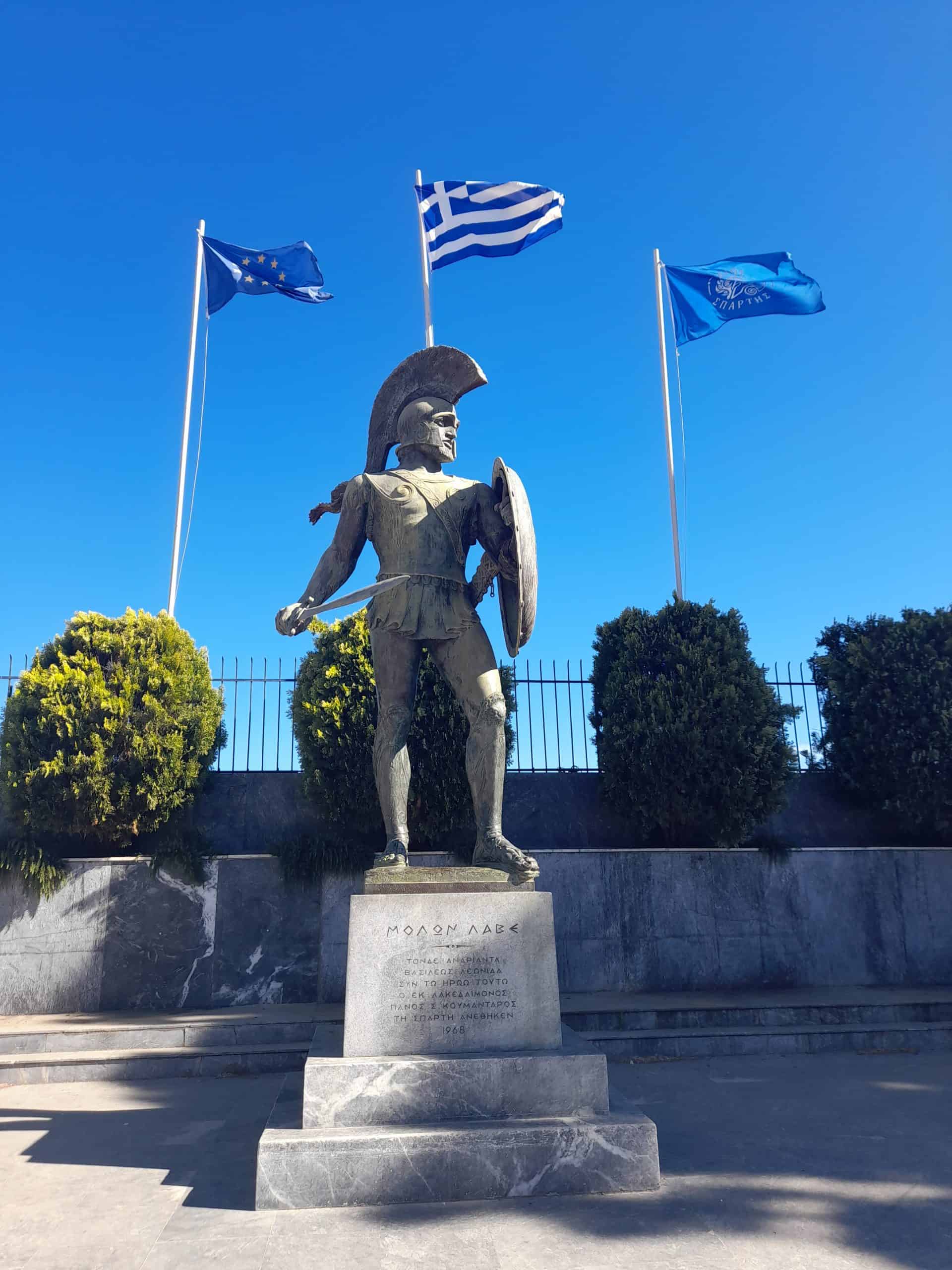
The rugged Peloponnese region of Greece is best known for its quaint villages, vineyards, and medieval towns. Public transport in the area is scarce and so, this part of the country is best explored by renting a car.
Head to Mystras – a well-preserved hilltop Byzantine settlement and admire its ancient monasteries and mysterious cave churches. Sample local delicacies and homemade wine in the villages of Laconia, and spend a few days in magical Monemvasia.
The city of Nafplio is a popular romantic getaway destination for Athenians. This was the former capital of Greece prior to the 19th century.
Sip Greek coffee in one of the quaint cafes off Syntagma Square, window-shop at the chic boutiques on Vasileos Konstantinou street and check out the old Venetian fortresses that still stand guard over the city. If you have a vehicle and more time to spare, head out to Epidaurus and the vineyards of Nemea.
The Saronic Gulf
Exploring the Greek islands is a completely different experience if you visit them in the summer or out of season. In Greece in January, most island businesses are closed down.
However, if you are interested in Greek history, culture, hiking, and seeing what life on a Greek island is really like when the tourists leave, there are a few options you may want to consider. The Saronic Gulf, in particular, is a nice archipelago to explore in the winter season, a unique experience of winter in Greece.
Ferries run to the islands all year round, departing regularly from the port at Piraeus. You can travel to Hydra, Poros, Spetses, Aegina, and Agistri.
Hydra is particularly charming and is home to what is considered to be one of the most beautiful ports in all of Greece. These islands also boast several charming walking trails that lead you along coastal paths to hidden coves and tiny villages.
Northern Greece
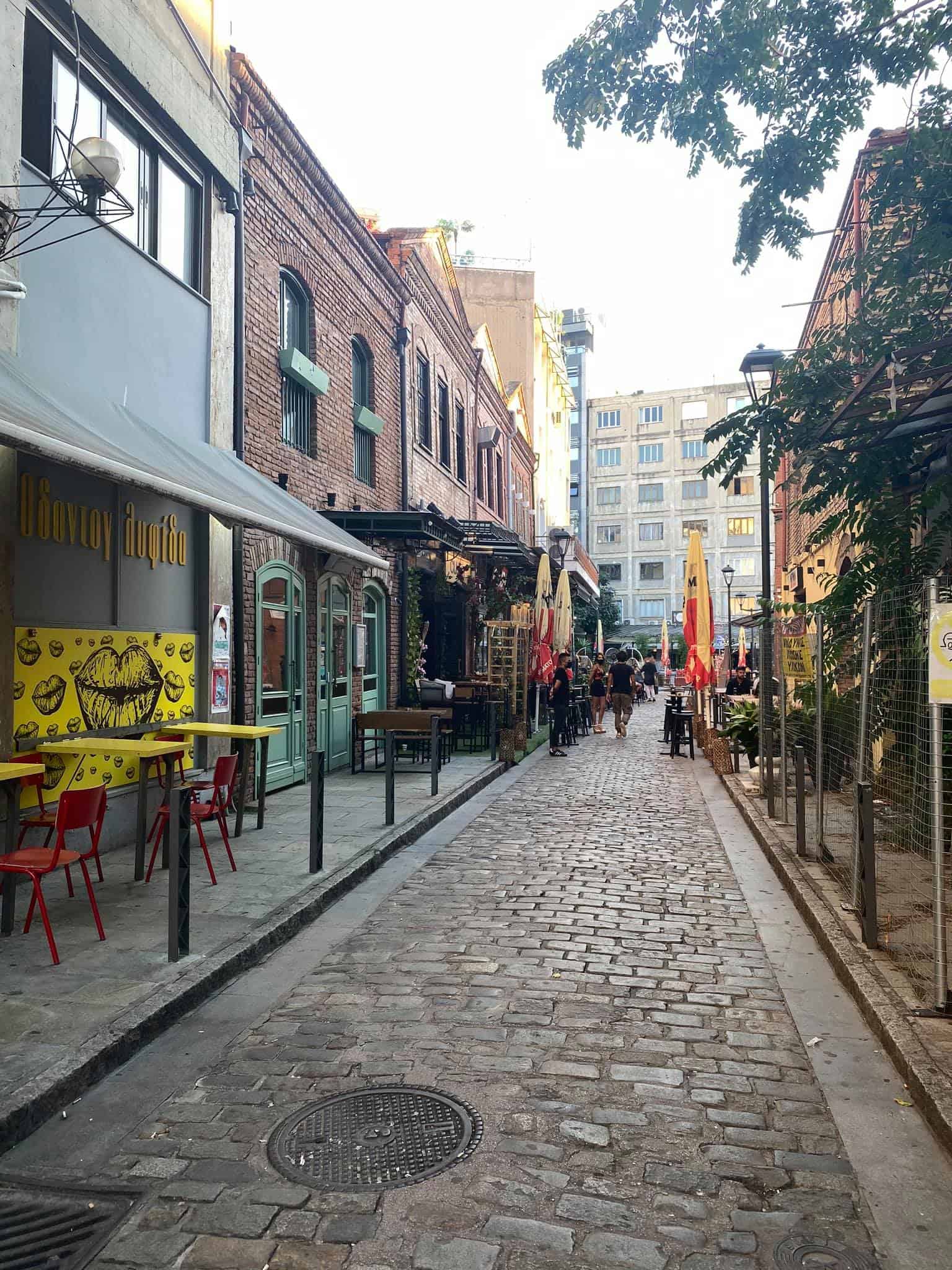
Northern Greece boasts a distinct culture and some of the friendliest locals in the entire country. The cities of Katerini, Trikala, and Kastoria are largely unknown to international travellers but have plenty to offer if you enjoy getting off the beaten path.
Kastoria, in particular, is a beautiful lake city that sits in the foothills of the Pindus Mountains. It has existed since the 10th century and can be found on the banks of Lake Orestiada.
Grab a takeout cappuccino from one of the waterfront coffee shops and stroll around the lake toward the Dragon’s Lair cave complex. Along the way, stop by the idyllic neighbourhoods of Apozari and Doltso.
These areas are filled with grand neoclassical mansions that were once the homes of those that made their fortune in this region as furriers. There are more than 60 old Byzantine churches in Kastoria, each one more impressive than the last.
Evritania
The Evritania region of Central Greece is known as “The Switzerland of Greece”. This is on account of its jaw-dropping natural scenery, and winding country roads that lead through dramatic mountain ranges.
Many Greeks will venture here over the Christmas and winter period. Velouchi ski resort can be found here and even if you haven’t skied before, you can easily rent equipment or take lessons.
Karpenisi is the capital of Evritania. Part of the charm of exploring this region is found in simply renting a log cabin with your friends or partner, and cosying up by a log fire.
Venture to Proussos Monastery – one of the most important monasteries in Greece and a place where Hellenic forces rested during the war for independence. Sample local Greek delicacies and homemade liquor in the tavernas of Megalo Chorio, and Gavros.
FAQs and Things to Know About Visiting Greece in January
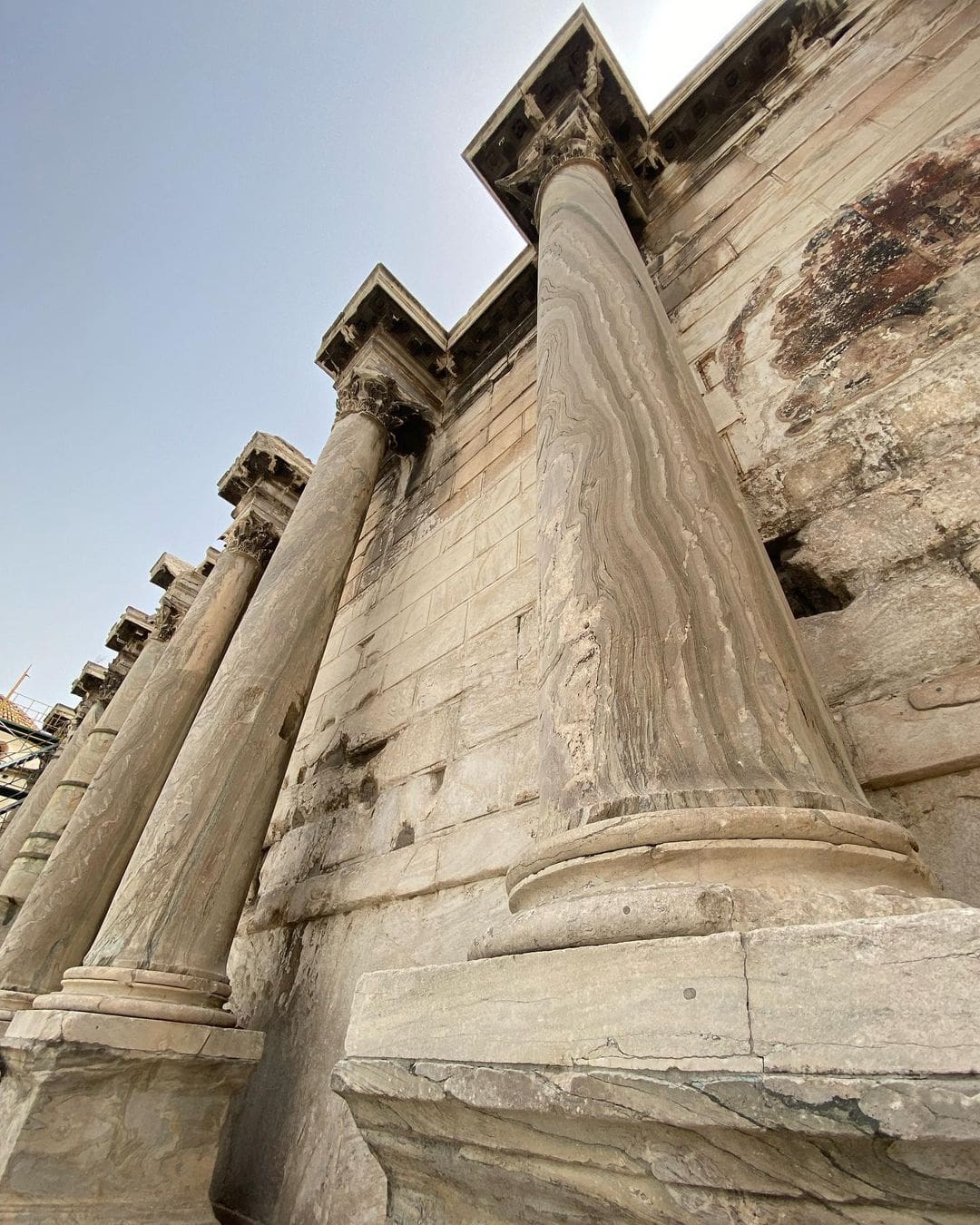
Do you have any other burning questions or concerns about visiting Greece in January? Hopefully, you will find the answers you are looking for below regarding a good time to visit Greece.
Entrance times are different
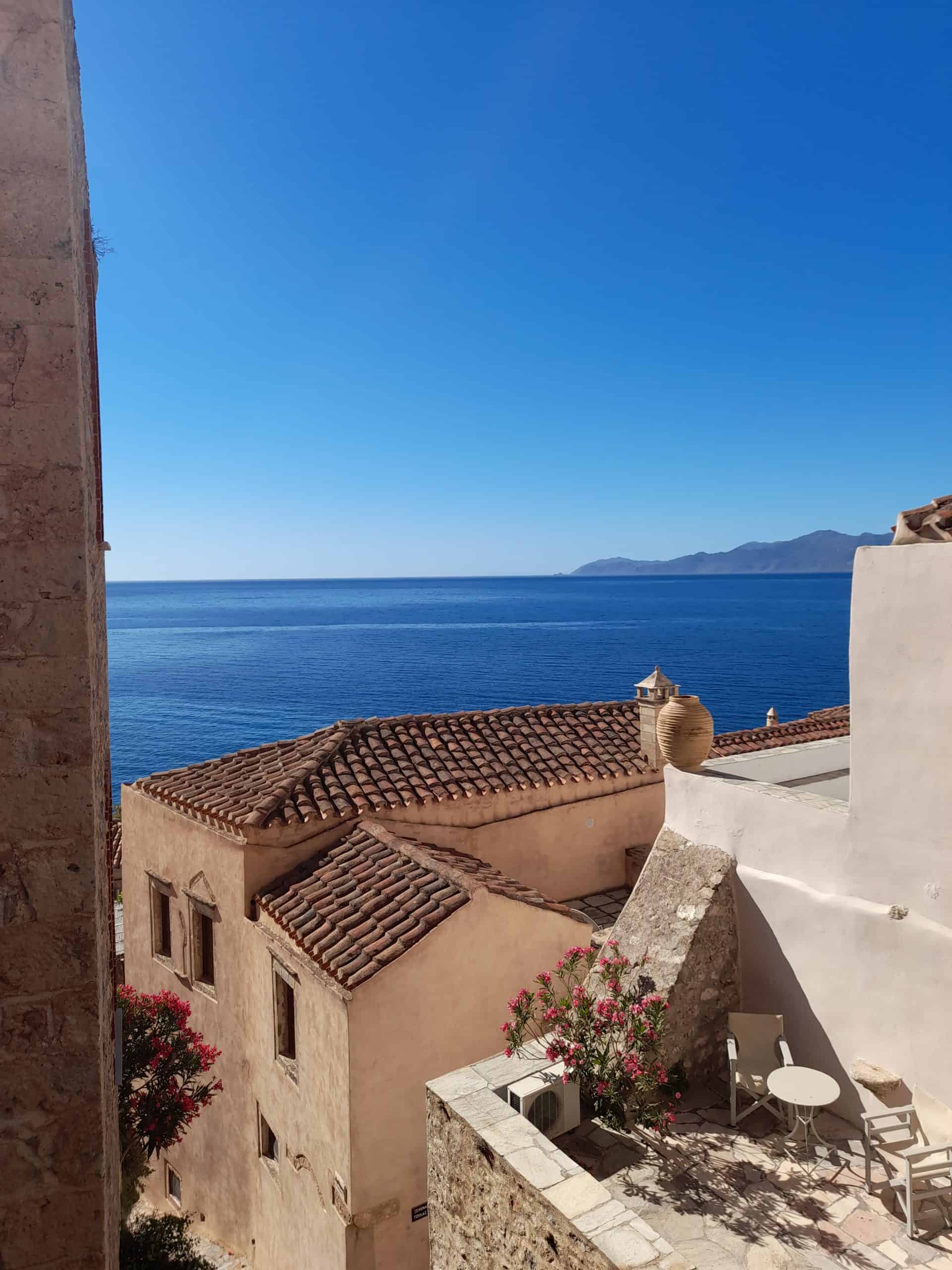
Most museums, archeological sites, art galleries, and other points of interest are open for a reduced number of hours during the winter months. For instance, in winter, the Acropolis is open from 8 AM to 5 PM, with the last entry at 4:30 PM.
Meanwhile, during the summer, it is open from 8 AM to 8 PM, with the last entry at 7:30 PM, this is a good time to visit Greece. It is worth checking the opening times of attractions such as the Ancient Agora, the Temple of Olympian Zeus, etc, in advance, particularly if you are heading out very early or late in the day.
The Acropolis and various other museums and cultural sites are closed on New Year’s Day.
Museums and historic sites are free on certain days
One big bonus of visiting Greece in January? Certain sites and attractions are free on the first Sunday of the month.
In 2023, this is Sunday the 8th of January.
Are the Greek islands warm in January?
The Greek islands are not warm in January and Greece is definitely not a winter sun destination. While it’s true that the further south you go, the warmer it gets, nowhere is ¨hot¨ by any means.
You can expect an average daytime temperature of around 10°C in January. You still see some brave people swimming on the islands and the beaches close to Athens. But this is perhaps not for the faint of heart!
Which Greek islands are warmest in January?
Truthfully, no Greek islands are hot in January. The further south you go in Greece, the warmer it gets.
So technically speaking, the Cyclades, Crete, and the Dodecanese are the warmest Greek islands in January. However, you still need to pack layers and prepare to wear coats and jackets. As a reference, in Heraklion (the capital of Crete), you can expect an average daytime temperature of 12°C.
Is Santorini warm in January?
The weather in Santorini in January is pleasant but it is by no means hot, making it a good time to visit Greece. Expect daily temperatures of around 13°C.
On the plus side, it is usually still sunny and the skies are often blue and free of crowds. Better still? You can enjoy majestic Santorini sunsets and take incredible photos without the crowds.
Is Jan a good time to go to Greece?
January can be a very good time to travel to Greece depending on what you are looking for. This is not a winter sun destination where you can lounge on the beaches in January and February.
However, temperatures are still mild and pleasant. Accommodation prices at this time can be as much as 60% lower than prices during the summer season.
Do I need to book everything well in advance to travel in January?
If you have travelled to Greece during the peak summer season before, you are probably accustomed to reserving everything months in advance. It is not unheard of for hotels to be at maximum occupancy between May and September.
Sometimes, if you don’t move fast enough, you find that there are no good options left. This is not the same story for travelling to Greece in winter.
Some destinations like Arachova, Metsovo, and Karpenisi are very popular among Greek domestic tourists and places book up quickly in December and January. But for the most part, you will still find that there is plenty of availability on flights, in hotels, and on excursions, even if you wait until a few weeks before your departure date to book.
It is still a good idea to have everything organised in advance of your trip for your own peace of mind. However, travelling out of season gives you a lot more flexibility.
What do I need to wear in Greece in January?
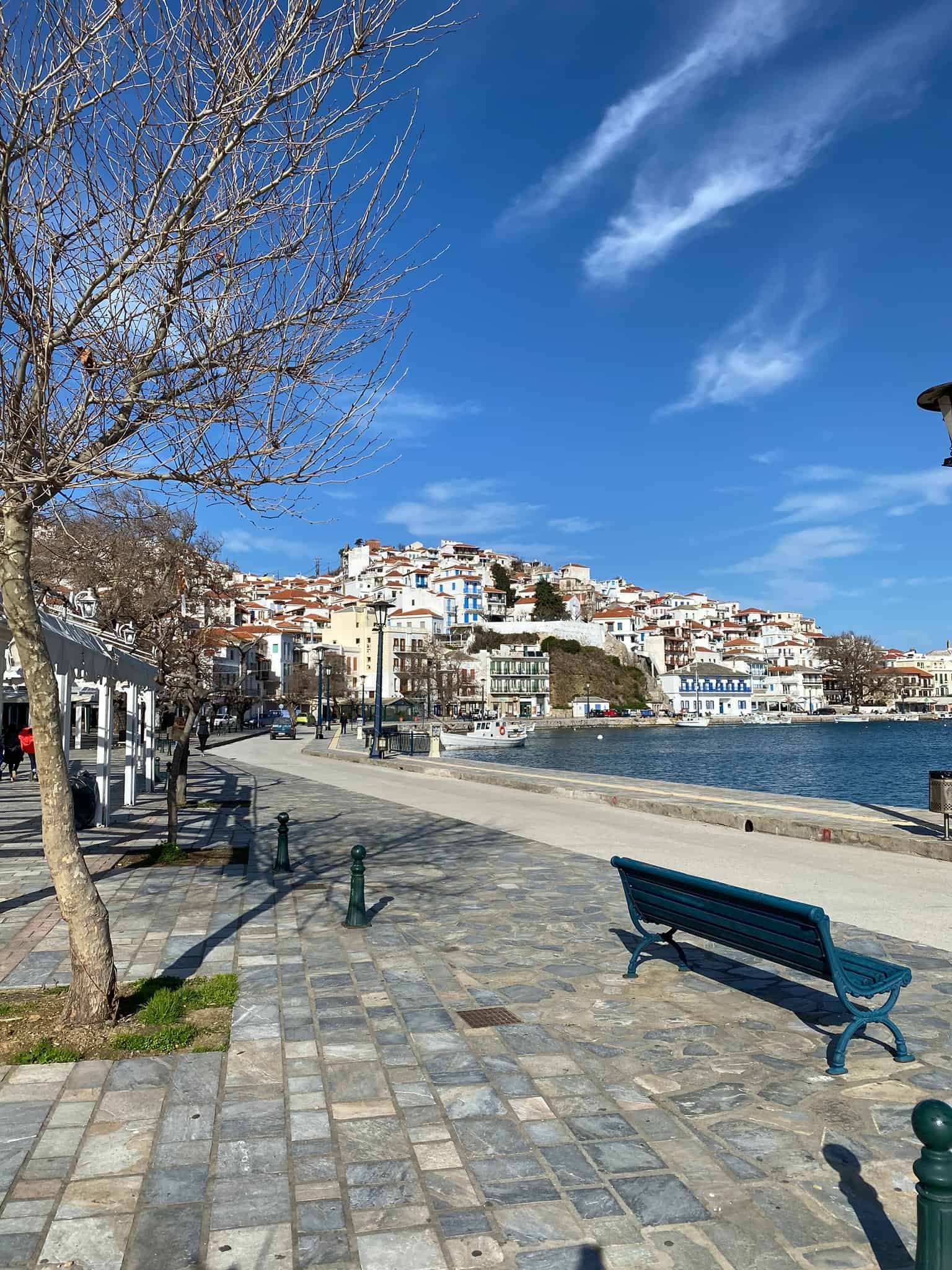
Layer up if you are planning to go to Greece in January. It can get quite cold, especially in the northern part of the country, and coats, hats, and scarves are a must.
Be sure to pack comfortable shoes and thick socks for walking and hiking. Layers are the keyword here. When visiting Greece in winter, even though it does get cold, you can also feel warm when you are walking around for extended periods beneath the sun so pack coats and jackets that you can remove and carry.
Notable celebrations in Greece in January

Most businesses and tourist sites are closed in Greece on New Year’s Day. However, in city centres you will still find a few fast food places and restaurants open to cater to tourists, particularly in Athens.
For Greeks, New Year’s Day is a time to enjoy good food with family. You will find a lot of bakeries selling a cake known as a “vasilopita” in December and January.
There are different variations to the recipe of this cake. However, traditionally it is made of sweet bread and is comparable in taste and texture to tsoureki.
The cake is cut among friends and family. A golden coin is hidden inside and whoever finds it is said to be guaranteed good fortune in the year ahead.
If you have Greek friends and family, this is a good tradition to join in. Otherwise, you can buy one of these cakes at a local bakery and cut it yourself among your travel companions!
Final Thoughts on visiting Greece in January

In January, Greece, especially Southern Greece, presents a unique travel experience. Despite being the coldest month, with milder temperatures in the mountainous regions and sunny days, it remains worth visiting.
This period, including February, often considered the coldest months, offers the perfect time to explore archaeological museums and ancient sites like the National Archaeological Museum, showcasing Greece’s rich history.
With fewer tourists, visitors can enjoy these best places to visit at bargain prices, immersing themselves in Greece’s natural beauty and cultural heritage.
Have you travelled to Greece in January? What did you think? How would you compare it to the experience of visiting Greece during the summer months?
Have a wonderful time here! Geia sou!

